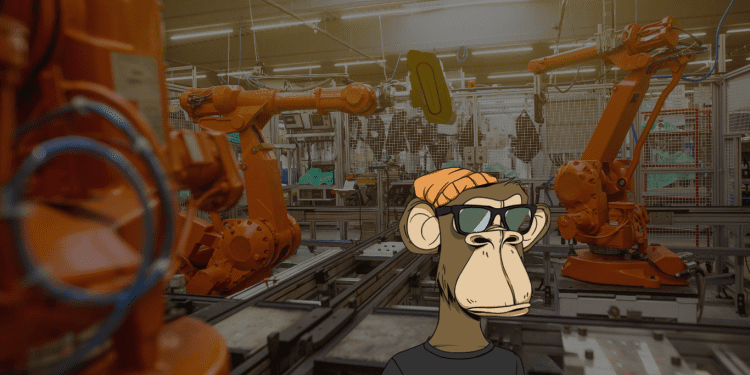Non-fungible tokens (NFTs) can help companies improve their supply chain management. This article will briefly review how NFTs can play a role in the future sustainability of global supply chains. Businesses across the world use barcodes to track items and then store all relevant information in a database. Barcode technology has been an effective management tool in supply chains. However, bar codes can be easily damaged, lost, or destroyed. They are making it difficult to track products after the point of sale. This article outlines four ways NFTs can contribute to more sustainable supply chains.
- Component-level identification
- Supply chain transparency
- Recycling end-of-life products
- Immutable & accessible data
NFTs for a Sustainable and Efficient Supply Chain
Using NFTs at the component level to track items, manufacturers can track the individual components used in a product and also trace those parts back to where they originated from. Doing so on a large scale can help identify faulty batches of products and trace their origin. Mass production makes it difficult to identify each part used in a manufacturing process. Paper trails and ledgers do exist to track the items we buy and sell. However, the two are often difficult to link with one another. For example, if a faulty batch of batteries was used to manufacture a bunch of phones, being able to identify and recall each compromised device is a far superior alternative to recognizing all the devices. NFTs would make the component level identification data more reliable and less susceptible to manipulation.
Tracking individual product components as NFTs can create an immutable ledger of a product life cycle and make a large amount of supply chain data more transparent. For example, a pair of shoes can be traced back to the factory in another country where it originated from. Purchase receipts for the sole, the lace, the top piece, and whatever else the manufacturers incorporated in the product will forever engrave in the blockchain. Each buyer can verify the previous buyer’s receipt, and this process can continue through to the end of a product’s life to recycling it.
Keeping copies of transactional data up to date is becoming increasingly difficult in a globalized economy driven by big data. Using blockchain technologies and NFTs specifically can address issues of data tampering or fraud. Historical blockchain data is immutable, and the entire ledger is distributed in such a way that ensures no single party can modify transactions already recorded in the ledger.
Drawbacks of Using NFTs Over Traditional Software
For this to be effective, many companies need to participate. Every supplier, manufacturer, and service provider involved in the manufacturing process must adopt NFTs. Many steps in a manufacturing process happen overseas and in countries where technology is less accessible, making NFTs challenging to implement and potentially too expensive to consider.
Shoes require twenty to forty different parts depending on the complexity, and cars require a thousand times. Tracking the former via NFTs may have an associated technological cost that does not match the value provided.
Conclusion
Modern manufacturing processes are complex and often require materials, parts, and labor from around the globe. Any hiccups in the supply chain can disrupt entire industries. For the reasons mentioned in this article, NFTs can prevent supply chain disruption and enhance certain efforts for sustainable supply chains with component-level identification, transparency, recycling, and immutable data.














